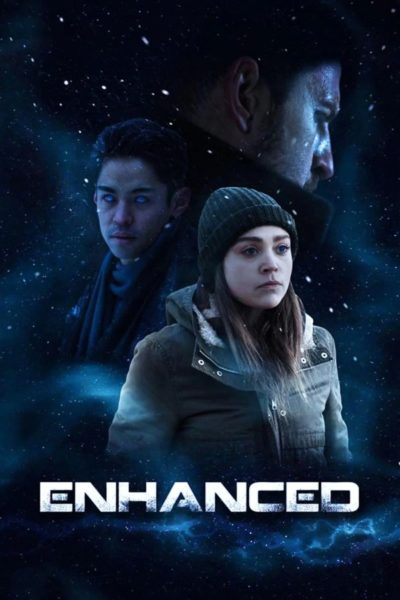★★
“Needs a short leash”
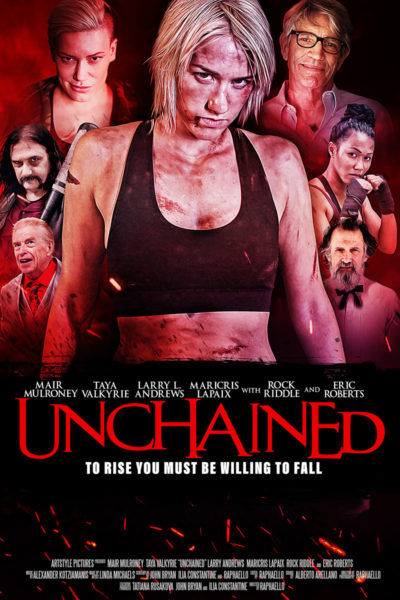 This likely suffered, having been watched the day after Boyka: Unleashed which, while not an action heroine film by any stretch of the imagination, is a near-perfect demonstration of how brutal, no-holds barred fights should be filmed. I can only guess that “Raphaello” never saw Boyka: Unleashed. And since he also co-wrote, co-produced, shot and edited this thing, pretty much all the blame for its shortcomings has to be laid at his feet. I say this, since the performances, if hardly Oscar-winning, are likely the least of the film’s worries. Even if Eric Roberts may have literally phoned, or these days, Zoomed in his role, straight from his living-room couch, as the story-telling father of the heroine.
This likely suffered, having been watched the day after Boyka: Unleashed which, while not an action heroine film by any stretch of the imagination, is a near-perfect demonstration of how brutal, no-holds barred fights should be filmed. I can only guess that “Raphaello” never saw Boyka: Unleashed. And since he also co-wrote, co-produced, shot and edited this thing, pretty much all the blame for its shortcomings has to be laid at his feet. I say this, since the performances, if hardly Oscar-winning, are likely the least of the film’s worries. Even if Eric Roberts may have literally phoned, or these days, Zoomed in his role, straight from his living-room couch, as the story-telling father of the heroine.
She is Aella (Mulroney), an ex-soldier who is now desperately seeking work to fend off the bills that are piling up. She goes to audition for a role in a movie about an underground fight club, only to be bopped on the head, and wake up in – what are the odds! – an underground fight club. There’s she is forcibly trained by The Warden (Andrews, looking like the resurrected corpse of Lemmy from Motorhead) and his sidekick Regina. The latter is played by Valkyrie – that’s not her real name, she’s a pro wrestler whom we remember from Lucha Underground, and is married to the more well-known John Morrison. From here, things progress more or less as you’d expect, with Aella and her fellow captives fighting each other, while plotting a break for freedom.
It is, as noted, the technical aspects which are woefully inept here. “Raphaello” seems incapable of holding the camera steady and pointing it in the same direction for more than two seconds during the fight scenes, which are borderline unwatchable as a result. Mind you, the participants appear largely unfamiliar with how to throw a punch; odd consider Aella’s supposed military background. Not helping matters are the tedious training montages, terrible soundtrack, and resources which fall well short of the high-end operation supposedly taking place, where women are sold for six-figure sums. I’m pretty sure the entire film did not cost anywhere near six figures. Then there’s the ending, where a giant fireball kills all the bad people, while the heroine escapes unscathed… by turning her back on it. I kid you not.
If more a disaster movie than an action one, in the sense of being a disaster, I will say, I did keep watching. As noted earlier, this is mostly due to decent performances. Mulroney has about the right mix of resilience and insolence for the role, while both Andrews and Valkyrie are cut from suitably villainous cloth. In better hands – such as the people behind Boyka: Unleashed – the actors and actresses could have been part of something entertaining. As is, it largely goes to prove that, no matter how many hyphens “Raphaello” may string into his credentials, there’s no substitute for talent.
Dir: Raphaello
Star: Mair Mulroney, Larry L Andrews, Taya Valkyrie, Maricris Lapaix





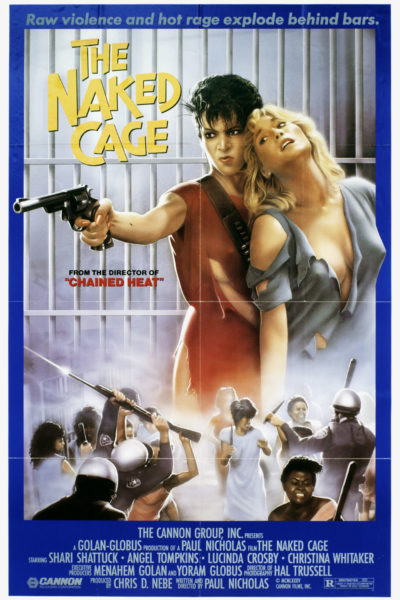
 Yes, in some way, this is probably among the closest the West has come to reproducing the DGAF attitude of Japanese entries like the
Yes, in some way, this is probably among the closest the West has come to reproducing the DGAF attitude of Japanese entries like the 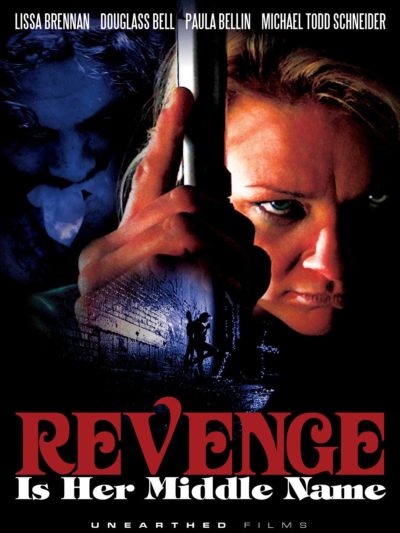
 This is one of those cases where you can see what a film is trying to do. It just isn’t very good at doing it. In this case, the central character is Gina (Killips), who works as a collector of debts for the mysterious and reclusive “Max”. This is for reasons that become clear towards the end – yet, like a lot else in the film, it doesn’t actually prove to be of much significance. Her latest job involves locating a very large sum of money which went missing from his organization. Suspicion falls on Myles (Orille), and Gina is tasked with finding out whether he was indeed responsible and if so, what he did with the loot. To this end, Gina inserts herself into Myles’s life and comes under increasing pressure from her boss, Simon (Rumley), to get results for Max. But Gina is increasingly disenchanted with her profession, and also increasingly convinced of Myles’s innocence.
This is one of those cases where you can see what a film is trying to do. It just isn’t very good at doing it. In this case, the central character is Gina (Killips), who works as a collector of debts for the mysterious and reclusive “Max”. This is for reasons that become clear towards the end – yet, like a lot else in the film, it doesn’t actually prove to be of much significance. Her latest job involves locating a very large sum of money which went missing from his organization. Suspicion falls on Myles (Orille), and Gina is tasked with finding out whether he was indeed responsible and if so, what he did with the loot. To this end, Gina inserts herself into Myles’s life and comes under increasing pressure from her boss, Simon (Rumley), to get results for Max. But Gina is increasingly disenchanted with her profession, and also increasingly convinced of Myles’s innocence. It’s probably significant that the opening credits of the film talk about the bands and the whiskey company involved. Any mention of the actual actresses taking part, is relegated to a secondary sequence, 15 minutes into the film. That seems to indicate where the priorities lie: if you told me the whole thing was made up to get freebies and as a showcase for the director’s mates, I’d have no problem believing you. Another warning sign is the way every post-production visual trick you can imagine is thrown in there; this often indicates an attempt to paper over flaws in other areas. There’s no doubt the film is certainly trying. However, Bizarro simply tries far too hard, and it’s not long before it becomes simply trying on the viewer instead.
It’s probably significant that the opening credits of the film talk about the bands and the whiskey company involved. Any mention of the actual actresses taking part, is relegated to a secondary sequence, 15 minutes into the film. That seems to indicate where the priorities lie: if you told me the whole thing was made up to get freebies and as a showcase for the director’s mates, I’d have no problem believing you. Another warning sign is the way every post-production visual trick you can imagine is thrown in there; this often indicates an attempt to paper over flaws in other areas. There’s no doubt the film is certainly trying. However, Bizarro simply tries far too hard, and it’s not long before it becomes simply trying on the viewer instead.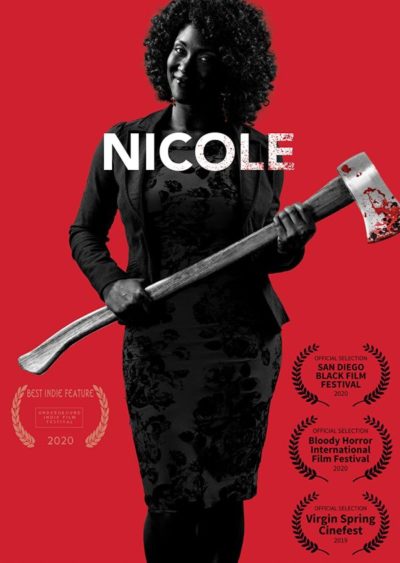 If you came into this with absolutely no previous knowledge (including the poster on the right!), you’d be forgiven if you spent the first forty minutes thinking this was an independent drama about the perils of professional dating life in the big city. Then, suddenly, it’s
If you came into this with absolutely no previous knowledge (including the poster on the right!), you’d be forgiven if you spent the first forty minutes thinking this was an independent drama about the perils of professional dating life in the big city. Then, suddenly, it’s 
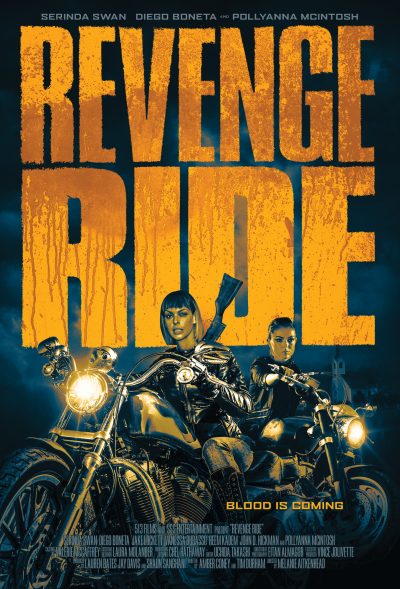 Mary (Dubasso) is drugged and raped by three members of the football team at a college party. Believing neither the college authorities nor the police will do anything, she turns to cousin Maggie (Swan) for help, because her relative is a member of the all-female Dark Moon motorcycle gang (eloquent slogan: “Eat my pussy”). Run by Trygga (McIntosh), they take revenge on the rapists, branding their catchphrase on the perpetrator’s asses, and leaving them in full view on the college campus. The fraternity boys don’t take this kindly, and strike back, causing things to escalate towards an all-out war. Complicating matters are Maggie’s increasing feelings for Brian (Boneta), one of the team, though uninvolved in the rape.
Mary (Dubasso) is drugged and raped by three members of the football team at a college party. Believing neither the college authorities nor the police will do anything, she turns to cousin Maggie (Swan) for help, because her relative is a member of the all-female Dark Moon motorcycle gang (eloquent slogan: “Eat my pussy”). Run by Trygga (McIntosh), they take revenge on the rapists, branding their catchphrase on the perpetrator’s asses, and leaving them in full view on the college campus. The fraternity boys don’t take this kindly, and strike back, causing things to escalate towards an all-out war. Complicating matters are Maggie’s increasing feelings for Brian (Boneta), one of the team, though uninvolved in the rape. Halle Berry was born the same year I was. There is, however, just one of us that is capable of convincingly playing the role of a mixed martial artist. To give you another yardstick, the lead in this was originally going to go to Mrs. Ryan Reynolds, Blake Lively (
Halle Berry was born the same year I was. There is, however, just one of us that is capable of convincingly playing the role of a mixed martial artist. To give you another yardstick, the lead in this was originally going to go to Mrs. Ryan Reynolds, Blake Lively (